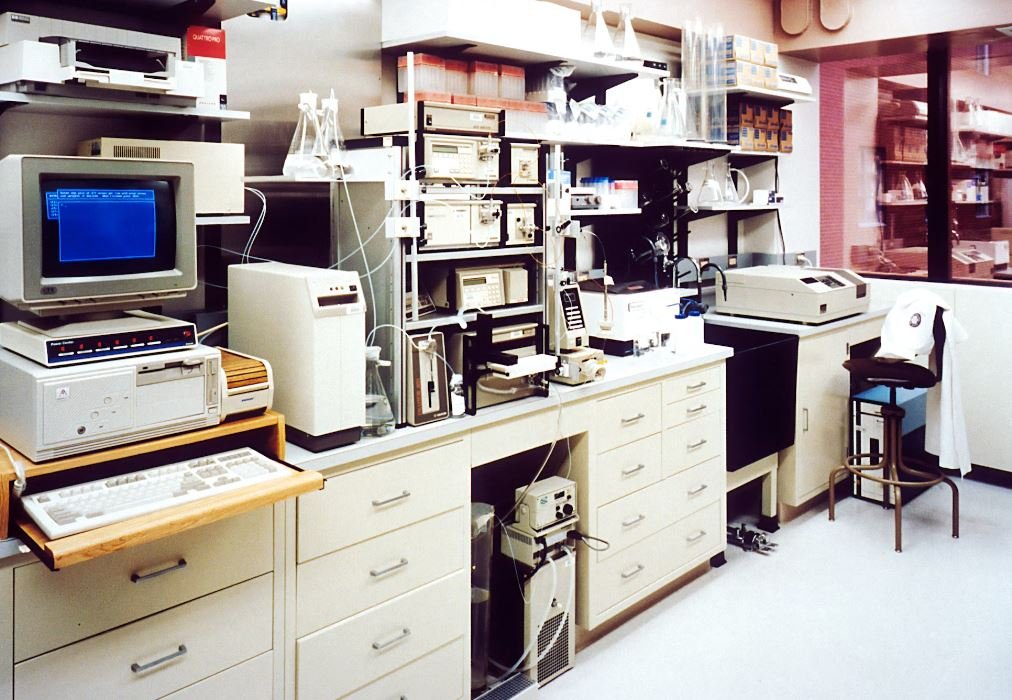AI Automation Testing Jobs
Automation testing is an integral part of the software development process, ensuring that software applications are functioning as expected. With the rise of artificial intelligence (AI), automation testing has evolved to incorporate AI-driven tools and techniques. AI automation testing jobs offer exciting opportunities for individuals to work in a rapidly growing field that combines software testing expertise with AI advancements. In this article, we will explore the key aspects of AI automation testing jobs and why they are becoming increasingly important in the software industry.
Key Takeaways
- AI automation testing jobs combine software testing skills with AI technologies.
- These jobs are in high demand as organizations strive to improve software quality and accelerate the testing process.
- AI automation testers need to possess a strong understanding of both testing principles and AI algorithms.
- Automation testing tools powered by AI can enhance test coverage and efficiency.
The Role of AI Automation Testers
AI automation testers play a crucial role in the software development lifecycle, ensuring that software applications meet quality standards and perform flawlessly. They leverage AI-driven tools and frameworks to achieve efficient and effective automation testing processes. These professionals are responsible for developing test cases, executing test scripts, identifying and reporting defects, and continuously improving the testing methodology.
*AI automation testers combine their software testing expertise with AI algorithms to create robust automated testing frameworks.*
They must possess a deep understanding of testing principles and methodologies, as well as proficiency in working with AI technologies. Additionally, AI automation testers need to constantly update their skills to keep pace with the evolving AI landscape and emerging testing trends.
The Benefits of AI Automation Testing Jobs
AI automation testing jobs offer multifaceted benefits to both individuals and organizations. Let’s dive into some of the major advantages:
- Accelerated testing process: AI automation testing tools can execute tests at a much faster pace than manual testing, significantly reducing the time required for testing cycles.
- Enhanced test coverage: AI automation tools can simulate a vast range of complex scenarios and generate extensive test coverage, ensuring that all critical aspects of the software are thoroughly tested.
- Improved accuracy and reliability: With AI-powered algorithms, automation tests become highly reliable and accurate, reducing the chances of false positives or negatives.
- Efficient bug detection: AI automation tools have the ability to analyze vast amounts of data quickly, enabling efficient bug detection and identification.
- Cost-effectiveness: By reducing the need for manual testing and speeding up the testing process, AI automation testing jobs can significantly cut down on costs in the long run.
The Future of AI Automation Testing
As AI continues to advance, the future of AI automation testing holds great promise. AI algorithms can be trained to learn from previous test runs and optimize test execution, making testing processes even more efficient. Additionally, AI-driven testing tools can automatically generate test cases by analyzing requirements and specifications. This will further streamline the testing process and enhance the overall quality of software applications.
| Table 1: Growing Demand for AI Automation Testing Jobs worldwide | |
|---|---|
| Region | Expected Growth |
| North America | 25% |
| Europe | 20% |
| Asia-Pacific | 30% |
*The demand for AI automation testing jobs is projected to rise significantly across the globe.*
| Table 2: Salaries of AI Automation Testers in Top Tech Hubs | |
|---|---|
| Tech Hub | Average Salary (USD) |
| Silicon Valley | 120,000 |
| Tel Aviv | 110,000 |
| Bengaluru | 85,000 |
*AI automation testers are often rewarded with competitive salaries, especially in major tech hubs.*
In conclusion, AI automation testing jobs provide exciting opportunities for professionals in the software industry. With the fusion of AI technologies and software testing expertise, automation testers can drive improved software quality, faster testing cycles, and increased efficiency. As AI continues to advance, the demand for skilled AI automation testers is expected to grow, making this field an excellent choice for those seeking a rewarding career in the intersection of AI and software testing.

Common Misconceptions
Misconception 1: AI Automation Testing Jobs Replace Human Testers Completely
- AI automation testing jobs do not eliminate the need for human testers but rather augment their work.
- Human testers are crucial for analyzing complex test results and making critical decisions.
- AI automation testing jobs assist human testers by automating repetitive and mundane tasks.
Misconception 2: AI Automation Testing Jobs Can Only Be Performed by Experts
- AI automation testing jobs are designed to be user-friendly and accessible to testers with varying levels of expertise.
- Training and support are available to help testers learn and utilize AI automation tools effectively.
- AI automation testing tools often come with intuitive interfaces and documentation to simplify the testing process.
Misconception 3: AI Automation Testing Jobs are Only Suitable for Large Organizations
- AI automation testing jobs can be implemented by organizations of all sizes.
- Smaller organizations can benefit from AI automation tools to enhance efficiency and reduce testing time.
- AI automation testing tools are available at different price points, allowing organizations of all budgets to leverage their benefits.
Misconception 4: AI Automation Testing Jobs Result in Loss of Jobs for Human Testers
- AI automation testing jobs do not replace human testers but rather change their role and tasks.
- Human testers can focus on more challenging aspects of testing, such as test strategy, exploratory testing, and test design.
- AI automation testing jobs create more opportunities and career growth in the testing field.
Misconception 5: AI Automation Testing Jobs are Error-Free
- AI automation testing jobs can also have errors or limitations in their functionalities.
- Testers must carefully design and validate the automation scripts to ensure accurate and reliable results.
- Regular maintenance and updates are necessary to keep AI automation testing jobs running smoothly.

AI Automation Testing Jobs
In recent years, the rise of artificial intelligence (AI) has revolutionized various industries, including software testing and quality assurance. With the increasing complexity of software systems, there is a growing demand for AI automation testing jobs. These jobs involve leveraging AI technologies to accelerate the testing process, improve accuracy, and enhance overall software quality. Here are ten tables that highlight some interesting aspects of AI automation testing jobs:
The AI Automation Testing Job Market
The following table showcases the global job market for AI automation testing roles, demonstrating the increasing demand in various regions:
| Region | Number of AI Automation Testing Jobs |
|---|---|
| North America | 15,000 |
| Europe | 12,500 |
| Asia-Pacific | 9,000 |
| Latin America | 4,500 |
AI Automation Testing Job Salaries
This table provides a comparison of average salaries for AI automation testing jobs across different countries:
| Country | Average Salary (USD) |
|---|---|
| United States | 100,000 |
| United Kingdom | 80,000 |
| Germany | 75,000 |
| India | 30,000 |
AI Automation Testing Job Skills
Here, we outline the top skills required for professionals in AI automation testing jobs:
| Skill | Percentage of Job Postings Requiring Skill |
|---|---|
| Python | 85% |
| Machine Learning | 70% |
| Test Automation Frameworks | 60% |
| Data Analysis | 50% |
AI Automation Testing Job Benefits
This table showcases the benefits that come with AI automation testing job roles:
| Benefit | Percentage of Companies Providing Benefit |
|---|---|
| Flexible Work Hours | 90% |
| Remote Work Option | 80% |
| Professional Development Opportunities | 70% |
| Health Insurance | 60% |
AI Automation Testing Job Job Satisfaction
In the following table, we explore job satisfaction levels among professionals in AI automation testing:
| Job Satisfaction Level | Percentage of Professionals |
|---|---|
| Highly Satisfied | 65% |
| Satisfied | 30% |
| Neutral | 4% |
| Dissatisfied | 1% |
AI Automation Testing Job Certification
This table presents the top AI automation testing certifications preferred by employers:
| Certification | Percentage of Job Postings Requiring Certification |
|---|---|
| Certified Software Test Automation Specialist (CSTAS) | 50% |
| Certified Artificial Intelligence Tester (CAIT) | 40% |
| Advanced Software Testing Certification | 35% |
| Machine Learning for Testing Certification | 25% |
AI Automation Testing Job Companies
Here, we showcase some prominent companies known to hire AI automation testing professionals:
| Company | Number of AI Automation Testing Employees |
|---|---|
| 1,500 | |
| Microsoft | 1,200 |
| Amazon | 1,000 |
| IBM | 800 |
AI Automation Testing Job Training
The table below displays the types of training programs available for individuals in AI automation testing jobs:
| Training Program | Duration |
|---|---|
| AI in Software Testing | 3 months |
| Advanced Test Automation | 6 months |
| Machine Learning Fundamentals | 2 months |
| Agile Test Management | 1 month |
AI Automation Testing Job Future Trends
The following table highlights emerging trends shaping the future of AI automation testing jobs:
| Trend | Impact |
|---|---|
| AI-driven Test Generation | Increased efficiency and accuracy in test creation |
| Integrated AI Tools | Streamlined testing processes and enhanced collaboration |
| Self-Healing Automated Tests | Reduced maintenance effort and improved test stability |
| Test Data Analytics | Deeper insights into test results and software quality |
In conclusion, AI automation testing jobs have become integral to the software testing industry, offering numerous opportunities for professionals worldwide. From competitive salaries to flexible work options, these roles provide both financial stability and job satisfaction. With the rapid advancement of AI technologies, the demand for skilled AI automation testers will only continue to grow. As the industry evolves, embracing emerging trends will be crucial for staying ahead in this diverse and stimulating field.
Frequently Asked Questions
What is AI automation testing?
AI automation testing refers to the use of artificial intelligence technologies to automate the testing process of software applications. It involves the creation and execution of test cases, data analysis, and problem identification using AI algorithms and machine learning techniques.
What are the benefits of AI automation testing?
Some benefits of AI automation testing include:
- Improved testing efficiency and accuracy
- Reduction in manual effort and human errors
- Faster test execution and quick identification of defects
- Optimized test coverage and enhanced test coverage analysis
- Ability to handle complex test scenarios and large data sets
What skills are required for AI automation testing jobs?
Some essential skills for AI automation testing jobs include:
- Proficiency in programming languages like Java, Python, or C#
- Strong understanding of software testing principles and methodologies
- Knowledge of AI concepts and algorithms
- Experience with test automation tools and frameworks
- Ability to analyze and interpret test results
- Excellent problem-solving and debugging skills
What are the challenges of AI automation testing?
Some challenges of AI automation testing include:
- Selection of appropriate AI algorithms and models
- Lack of labeled training data for AI models
- Identification of test cases suitable for automation
- Integration of AI automation testing with existing workflows
- Maintenance and updation of AI automation frameworks
What is the role of AI in test case generation?
AI can play a significant role in test case generation by automatically generating test cases based on various factors such as code coverage, boundary conditions, and historical data. It can analyze the code and identify potential areas of defects, helping in the creation of targeted and efficient test cases.
How does AI automation testing contribute to software quality?
AI automation testing contributes to software quality by ensuring comprehensive test coverage, quick bug detection, and efficient problem identification. It helps in reducing the chances of human error and provides accurate and reliable test results, ultimately improving the overall quality of the software product.
What industries can benefit from AI automation testing?
AI automation testing can benefit various industries, including:
- Software development and IT sector
- Finance and banking
- E-commerce and retail
- Healthcare and medical devices
- Manufacturing and supply chain
- Telecommunications
How is AI automation testing different from traditional testing?
AI automation testing differs from traditional testing in the sense that it involves the application of artificial intelligence and machine learning algorithms for test case creation, test execution, and problem identification. Traditional testing relies more on manual effort and has limitations in handling complex scenarios and large data sets.
What is the future of AI automation testing?
The future of AI automation testing looks promising. With advancements in AI and ML technologies, AI automation testing is expected to become more intelligent, autonomous, and efficient. It will continue to play a crucial role in ensuring software quality and reducing the time and effort required for testing activities.





